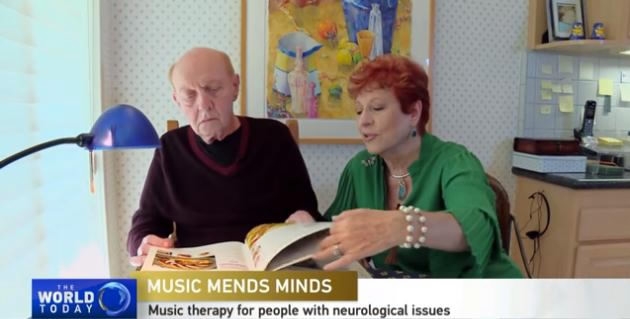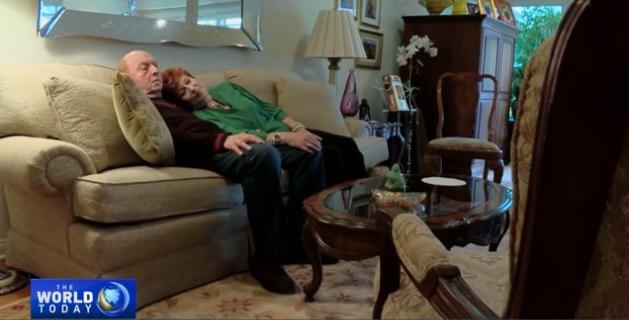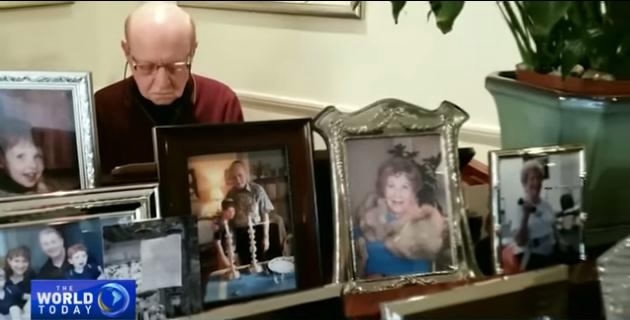
Culture
10:44, 28-Aug-2017
The 5th Dementia: Musical group offers relief from neurological issues
By CGTN’s Patrice Howard

Many people say music has healing powers, not just for those who listen, but also for those who make it. In Los Angeles, a band of people suffering from neurological issues is gaining attention from the medical community.
A decade has passed since Carole Rosenstein, the founder of a non-profit project named “Music Mends Minds,” first noticed a change in her husband Irwin.
“He was not able to bring a smile onto his face. And I would question, how come?” Carole recalls.
The answer came in the form of a diagnosis: Parkinson’s disease and dementia. The illness has chipped away at Irwin’s cognitive function, but if you get him to a piano, you would never know what is happening.

Carole Rosenstein accompanies her husband reading. /CGTN Photo
Carole Rosenstein accompanies her husband reading. /CGTN Photo
“He would go to the piano in a very low place, and I would see that as he was playing the piano. He would suddenly have life breathed into him again,” Carole says with delight.
Music helped Irwin when medicine could not, so Carol decided to start a band for her husband and others like him. They named it “The 5th Dementia.”
The band welcomes musicians and singers who are afflicted with neurological issues like dementia, Alzheimer’s or Parkinson’s.
“There are people who cannot really carry on a conversation, but they can play hundreds of songs,” Kelly Hodell, a volunteer who plays harmonic, explains. “For some reason the memory doesn’t forget music. It forgets everything else, but not music.”

Carole Rosenstein accompanies her husband listening to music. /CGTN Photo
Carole Rosenstein accompanies her husband listening to music. /CGTN Photo
Their muscle memory does most of the work, even if they can no longer read music. There are no wrong notes here, only smiles and support.
The musicians and their family members agree: music is making a difference for them. They say band members leave practice feeling energized and less symptomatic.
Dr. Jeff Bronstein, professor of neurology at UCLA, says that music may not be a cure for cognitive decline, but it is a therapy that works.

Carole Rosenstein's husband Irwin listens to music. /CGTN Photo
Carole Rosenstein's husband Irwin listens to music. /CGTN Photo
“When we see the people in this program, they come alive,” Dr. Bronstein says. “They are more interactive, they are more animated, they are more functional. If you can treat depression, for example, with music, that’s wonderful and replaces an anti-depressant. I think the social aspects might be the most important part.”
To support the band, Irwin and Carol founded a non-profit project named “Music Mends Minds.” They are now working with Rotary International to start bands like “The 5th Dementia” in cities worldwide.
“We have now a new family, moving together, using music as the common thread, and we have converted so much suffering into pure joy,” Carole says.
For proof that the music therapy is working, just watch for a smile.
10072km

SITEMAP
Copyright © 2018 CGTN. Beijing ICP prepared NO.16065310-3
Copyright © 2018 CGTN. Beijing ICP prepared NO.16065310-3